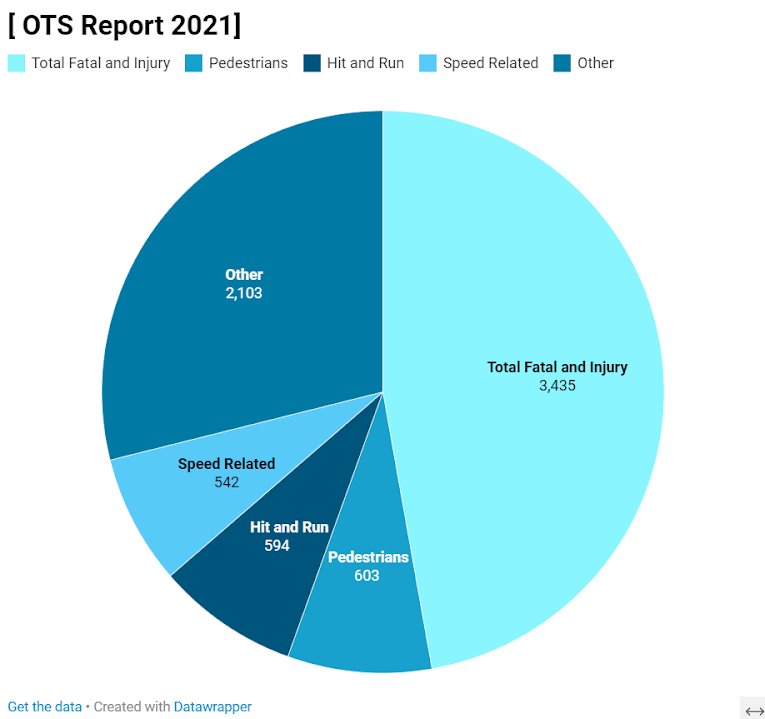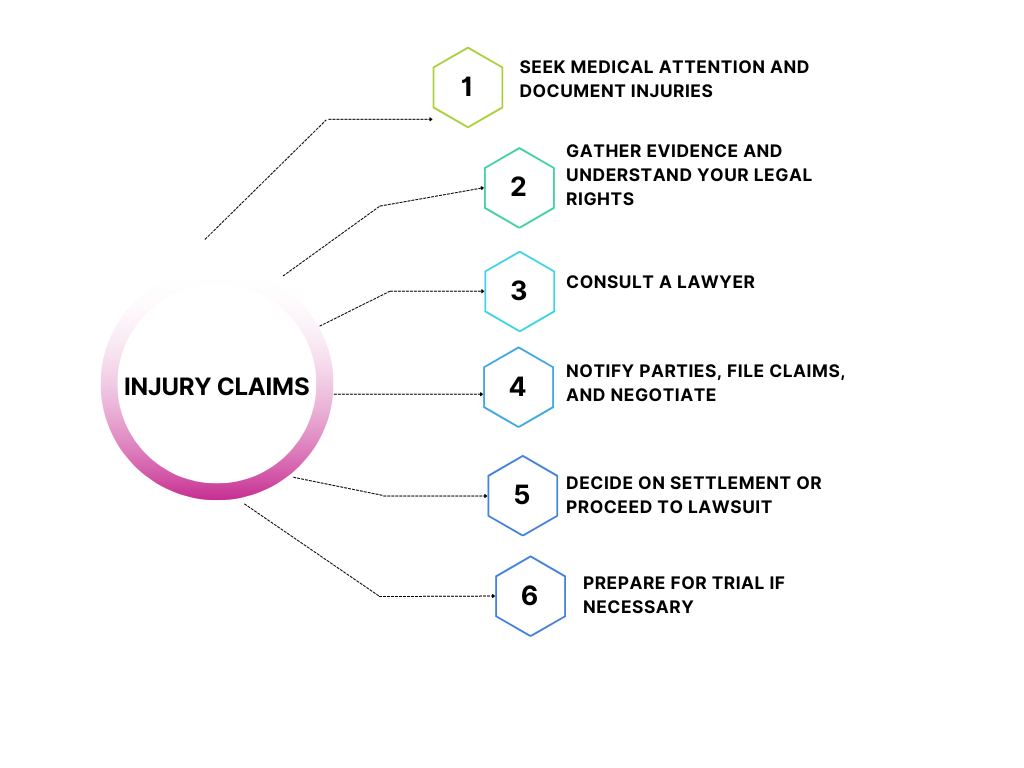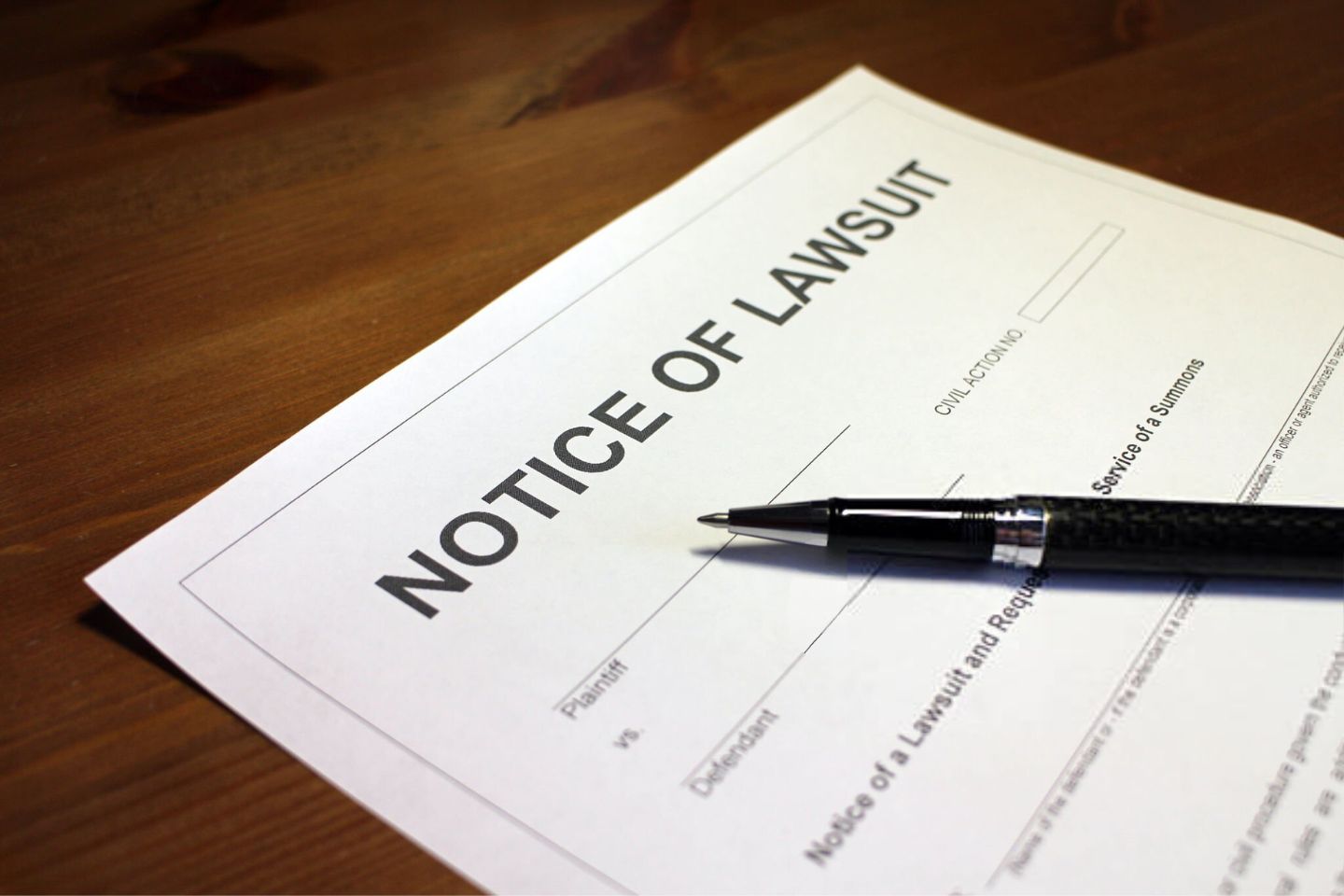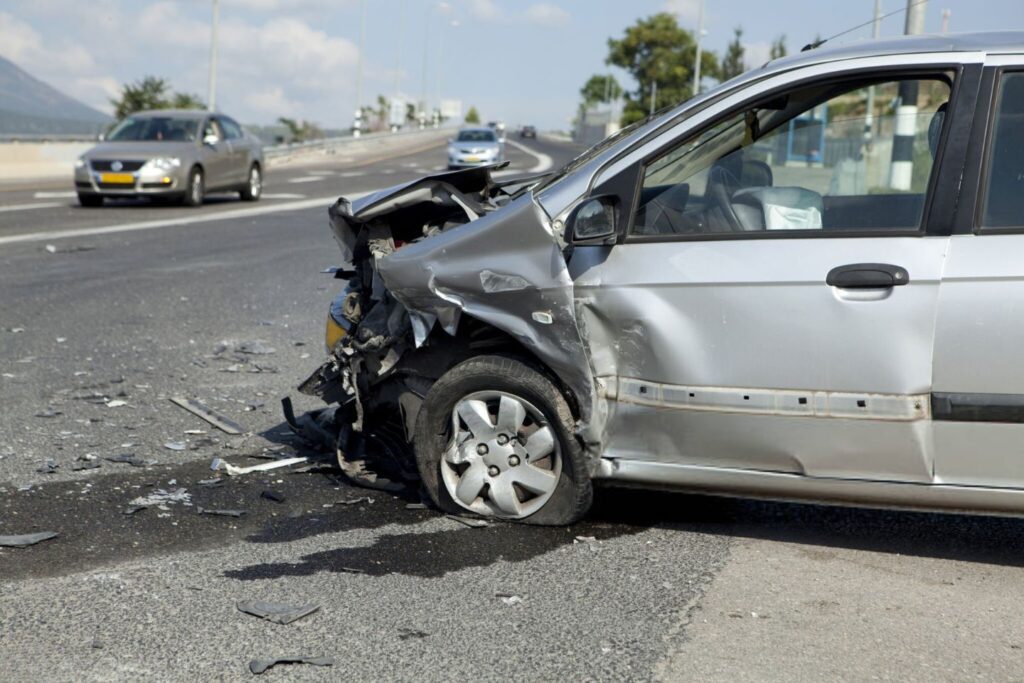Accidents in San Francisco are a harsh reality for many, often leading to confusion and the need for legal guidance. Recent data shows that as of 2021 alone, accidents in San Francisco led to a total of 27 deaths. The impact on those involved can be significant, raising questions about what to do next.
This blog aims to shed light on the causes of accidents in San Francisco and the legal steps that victims can take. We’ll discuss how understanding your rights can help navigate the legal system and secure the compensation you need.
- Common Causes of Accidents in San Francisco
- Legal Considerations After an Accident in San Francisco
- Understanding San Francisco’s Legal Codes
- Navigating Injury Claims in San Francisco
- Step 1: Seek Medical Attention
- Step 2: Document the Accident and Your Injuries
- Step 3: Understand Your Legal Rights
- Step 4: Consult with a Personal Injury Lawyer
- Step 5: Notify Relevant Parties and File a Claim
- Step 6: Negotiate a Settlement
- Step 7: File a Lawsuit if Necessary
- Step 8: Discovery and Trial
- Step 9: Settlement or Judgment
Common Causes of Accidents in San Francisco
San Francisco’s bustling streets present various challenges for drivers, cyclists, and pedestrians alike, contributing to the city’s accident rates. Understanding these causes is crucial for residents and visitors to navigate the city safely.


- Cyclist and Pedestrian Traffic: With a high volume of cyclists and pedestrians sharing the road, the potential for accidents is heightened. As per the OTS data report from 2021, a total of 421 victims were involved in bicycle-related accidents.
- Ignoring Stop Signs and Red Lights: Disregarding stop signs and red lights is a common cause of accidents in the city. Such behavior not only endangers the driver but also other road users, leading to potential side-impact and head-on collisions. According to recent statistics from October 2023, 14.85% of total accidents in the month were caused due to not following the stop signs.
- Speeding: Exceeding speed limits contributes significantly to the severity of accidents. Speeding reduces the driver’s reaction time and increases the impact force, often resulting in more serious injuries and damages. OTS data revealed that a staggering total of 542 accidents were caused due to overspeeding.
- Drunk Driving: Despite rigorous laws and public awareness campaigns, drunk driving remains a significant cause of accidents in San Francisco. Operating a vehicle under the influence of alcohol impairs judgment, coordination, and reaction times, making it one of the most dangerous behaviors on the road. OTS statistics from 2021 reveal that 306 victims were killed or injured due to alcohol-related accidents.
The aftermath of an accident can be overwhelming. If you have been involved in an accident in San Francisco, contact the Personal Injury Center for guidance tailored to your situation. We’ll connect you with a qualified lawyer to help you seek the compensation you deserve.
Legal Considerations After an Accident in San Francisco
After experiencing an accident in San Francisco, it’s crucial to arm yourself with knowledge of local laws and legal considerations. Here are some essential San Francisco accident-related laws and what they mean for you.
Immediate Steps and Reporting Requirements
In San Francisco, as in the rest of California, you’re required to report any accident resulting in injury or death to the California Highway Patrol or local police department immediately. For accidents that involve property damage over a certain amount, a report must also be filed with the Department of Motor Vehicles (DMV) within ten days. This step is not just a legal formality; it creates an official record of the incident, which is crucial for any claims process.
Understanding Comparative Fault
San Francisco, California operates under a ‘pure comparative negligence’ system. This means that if you’re found partially at fault for the accident, your compensation can be reduced by your percentage of fault. For instance, if you’re deemed 20% responsible for the accident, your compensation will be reduced by 20%. It’s a system that emphasizes fair adjustment based on responsibility but also requires thorough documentation and argumentation to ensure your side is accurately represented.
Statute of Limitations
There’s a ticking clock on how long you must file a lawsuit for injuries or damages resulting from an accident. If you have been involved in an accident in San Francisco, you must know that the statute of limitations for personal injury claims is generally two years from the date of the injury. If you’re claiming against a city, county, or California state government agency, you have a shorter window—just six months to file an administrative claim. Missing these deadlines can mean losing your right to compensation, making timely legal consultation essential.
Dealing with Insurance Companies
Sorting through insurance claims can be a hassle. San Francisco requires all drivers to have a certain amount of minimum liability insurance. However, talking to insurance companies after an accident—whether it’s with your own insurance or the other person’s—often requires a smart approach. These companies try to pay out as little as possible, so it’s important to know what your claim is really worth before you start talking to them or accepting any offers.
Under California Insurance Code §11580.1b, the minimum liability insurance requirements for private passenger vehicles include:
- $15,000 for injury/death to one person.
- $30,000 for injury/death to more than one person.
- $5,000 for damage to property.
This type of insurance helps pay for the other person’s expenses if you’re at fault in an accident. Remember, just having comprehensive insurance doesn’t count for meeting these requirements. And, if you’re driving a commercial or fleet vehicle, there might be other insurance rules you will have to abide by.
Navigating these legal considerations can be daunting, especially when you’re focused on recovery. That’s where we come in. At The Personal Injury Center, we understand the complexities of accident laws in San Francisco and are here to help bridge the gap between you and the expert legal assistance you need.
Understanding San Francisco’s Legal Codes
Following an accident in San Francisco, familiarizing yourself with specific legal codes can be instrumental in safeguarding your rights and fulfilling your responsibilities. Below is a brief overview of pertinent legal codes that could greatly influence the outcome of any accident-related legal proceedings.
- Duty to Provide Information and Render Aid (California Vehicle Code §20003): After an accident involving injury or death, drivers must provide their identifying information to the other parties involved and any police officers investigating the scene. Additionally, they must render reasonable assistance to injured persons, such as transporting or making arrangements for transporting them to medical treatment if it’s apparent that treatment is necessary or requested by the injured person.
- Wrongful Death Claims in California (CCP §§377.60-377.62): In case the accident causes the death of a person, a death claim must be filed. This section defines the legal framework for wrongful death lawsuits in California, detailing who can file a claim, what damages are recoverable, and the filing deadline. Immediate family members, including spouses, domestic partners, and children, are typically eligible to file, seeking compensation for both economic losses (like lost income and funeral expenses) and non-economic damages (such as loss of companionship). Claims must be filed within two years of the death to be considered valid.
- Driving Under the Influence (California Vehicle Code §§23152 and 23153): These laws make it illegal to drive while impaired by alcohol or drugs, establishing specific blood alcohol concentration (BAC) limits of 0.08% for most drivers, 0.04% for commercial drivers, and any detectable amount for drivers under 21. Penalties escalate with the severity of the offense, including mandatory DUI education programs, installation of ignition interlock devices, and significant financial costs. Repeat offenses or DUIs causing injury can lead to felony charges, reflecting the law’s strict stance against impaired driving to ensure road safety.
Navigating Injury Claims in San Francisco
Navigating personal injury claims can be a confusing process. However, understanding the process can significantly demystify the steps involved, from the initial documentation of the incident to the final settlement or court proceedings.
Here’s a detailed guide to help you through this challenging time.


Step 1: Seek Medical Attention
The first priority after any accident should always be your health and safety. Documentation of your injuries will also play a vital role in your personal injury claim, serving as evidence of the damages you’ve suffered.
Step 2: Document the Accident and Your Injuries
Gather as much information as you can about the accident. This includes taking photos of the scene, your injuries, and any damages to personal property. Collect names and contact information of any witnesses, and if possible, obtain a copy of the police report.
Keep a detailed record of medical treatments, receipts, and any other expenses related to the accident. This documentation will be crucial when negotiating with insurance companies or presenting your case in court.
Step 3: Understand Your Legal Rights
Familiarizing yourself with San Francisco’s specific legal standards and statutes related to personal injury is essential. Understanding specific city ordinances that may impact your case, is vital in effectively navigating your personal injury claim and securing the compensation you deserve.
Step 4: Consult with a Personal Injury Lawyer
Personal injury law can be complex, and navigating the claims process on your own can be overwhelming. Consulting with a personal injury lawyer who has experience with San Francisco’s legal landscape can provide you with invaluable guidance. A lawyer can help you understand your rights, evaluate your claim, and advise you on the best course of action.
Step 5: Notify Relevant Parties and File a Claim
Notify the at-fault party’s insurance company about your intention to file a claim. However, be cautious in your communications and avoid providing detailed information about the accident or your injuries without consulting your lawyer. Your attorney can help draft a demand letter, outlining the specifics of your claim and the compensation you’re seeking.
Step 6: Negotiate a Settlement
Most personal injury claims are settled out of court. Your lawyer will negotiate with the insurance company on your behalf, using the evidence gathered to justify your compensation claim. This process can involve several rounds of negotiation. If the insurance company offers a settlement, your lawyer will help you assess whether it adequately covers your losses and advise whether to accept or continue negotiations.
Step 7: File a Lawsuit if Necessary


If a fair settlement cannot be reached, the next step may be to file a lawsuit. This step elevates your claim to a formal legal dispute, requiring detailed preparation and understanding of courtroom procedures.
Step 8: Discovery and Trial
During the discovery phase, both sides exchange information and evidence related to the case. This can include depositions, requests for documents, and interrogatories. If the case proceeds to trial, it will be heard by a judge or jury, who will make a final decision on liability and damages. Trials can be lengthy and unpredictable, but sometimes they are necessary to achieve fair compensation.
Step 9: Settlement or Judgment
Even after a lawsuit is filed, settlement negotiations can continue. Many cases are settled before reaching trial. If the case goes to trial and you win, the court will issue a judgment in your favor for a specific amount of compensation. However, remember that the defendant can also appeal the court’s decision, potentially prolonging the process.
Navigating a personal injury claim in San Francisco involves multiple steps, from immediate actions after the accident to potentially going to trial. Partnering with an experienced personal injury lawyer can significantly ease the burden of this process, allowing you to focus on your recovery while they handle the legal complexities.
Remember, you don’t have to navigate this journey on your own. The Personal Injury Center is here to connect you with skilled legal professionals ready to advocate on your behalf and guide you toward a resolution.
Key Takeaways
|



